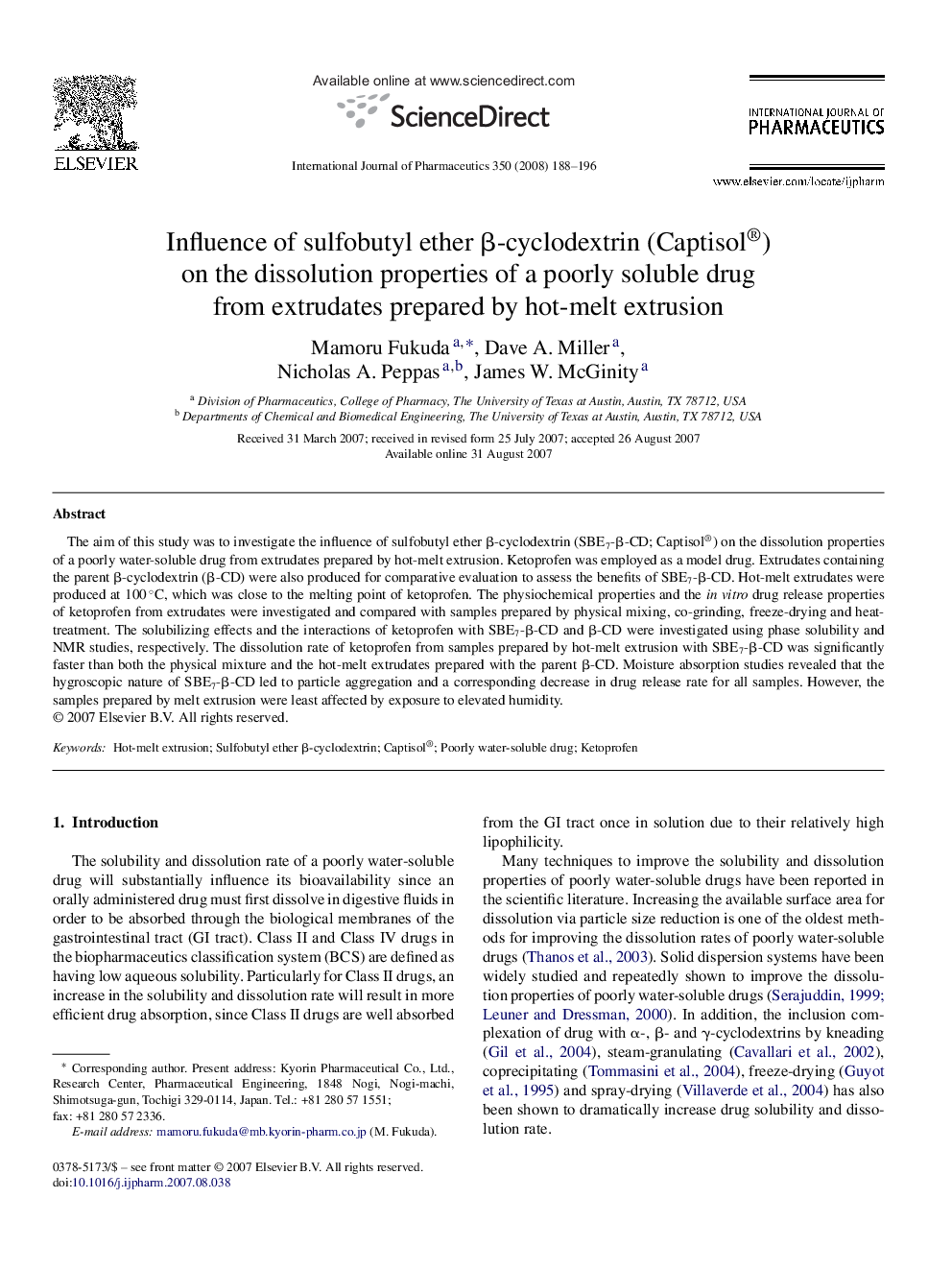| Article ID | Journal | Published Year | Pages | File Type |
|---|---|---|---|---|
| 2505713 | International Journal of Pharmaceutics | 2008 | 9 Pages |
The aim of this study was to investigate the influence of sulfobutyl ether β-cyclodextrin (SBE7-β-CD; Captisol®) on the dissolution properties of a poorly water-soluble drug from extrudates prepared by hot-melt extrusion. Ketoprofen was employed as a model drug. Extrudates containing the parent β-cyclodextrin (β-CD) were also produced for comparative evaluation to assess the benefits of SBE7-β-CD. Hot-melt extrudates were produced at 100 °C, which was close to the melting point of ketoprofen. The physiochemical properties and the in vitro drug release properties of ketoprofen from extrudates were investigated and compared with samples prepared by physical mixing, co-grinding, freeze-drying and heat-treatment. The solubilizing effects and the interactions of ketoprofen with SBE7-β-CD and β-CD were investigated using phase solubility and NMR studies, respectively. The dissolution rate of ketoprofen from samples prepared by hot-melt extrusion with SBE7-β-CD was significantly faster than both the physical mixture and the hot-melt extrudates prepared with the parent β-CD. Moisture absorption studies revealed that the hygroscopic nature of SBE7-β-CD led to particle aggregation and a corresponding decrease in drug release rate for all samples. However, the samples prepared by melt extrusion were least affected by exposure to elevated humidity.
